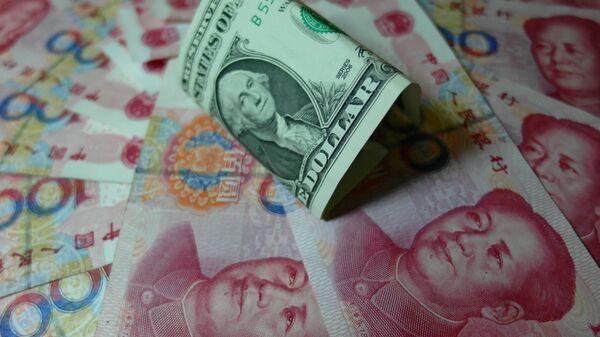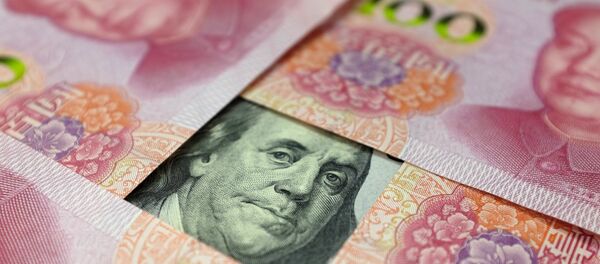The world economy is set to be reshaped: while the position of Washington is still strong, there is no question that power will become "more diffuse," according to Philip S. Golub, professor of international relations at the American University of Paris.
In his article for Le Monde Diplomatique, the academic points out that the International Monetary Fund (IMF) agreed to add the Chinese yuan (renminbi) to its reserve currency basket on November 30, 2015.
"The Executive Board's decision to include the RMB in the SDR basket is an important milestone in the integration of the Chinese economy into the global financial system," Christine Lagarde, Managing Director of the IMF, stated at the conclusion of the meeting.
So far, the basket will comprise the US dollar, euro, the Chinese yuan, Japanese yen, and British pound. The addition of the yuan will take effect in October 2016.
"The RMB [renminbi] is still far from world reserve status, requiring full convertibility and complete capital market liberalization, which China is not ready for and carries significant risks. But the RMB's rise is a 'momentous event in […] international finance,' according to a former IMF economist [Eswar Prasad] — the beginning of a slow shift towards a tripolar world monetary system no longer exclusively centered in the West," Golub emphasizes.
Indeed, the creation of the New Development Bank (NDB) and the Asian Infrastructure Investment Bank (AIIB) significantly challenge the authority of traditional rule-makers, the academic underscores.
At the same time, China and the US remain deeply interdependent. Remarkably, both powers are currently seeking to reduce this interconnection to untie their hands.
The internationalization of the Chinese yuan is just part of the story.
"While the predominance of the dollar will not be seriously challenged soon, a slow shift in global monetary relations seems inevitable," Golub stresses.
Financial website Zero Hedge echoes the analysts.
"Shifting to the idea of yuan hegemony, China is aggressively pushing its Silk Road Fund and Asian Infrastructure Investment Bank… China will push for the yuan to play a prominent role in the settlement of AIIB transactions and may look to establish special reserves in both the AIIB and Silk Road fund to issue yuan-denominated loans," Zero Hedge wrote in late January 2016.
However, Golub suggests that the dollar and the yuan will co-exist. He cites Professor of International Political Economy University of California Benjamin J. Cohen who wrote in his essay "The Future of Reserve Currencies":
"[The] most probable outcome is [like] the interregnum between the two world wars, when Britain's pound sterling was in decline and the dollar on the rise but neither was dominant. Coming years [will see] several monies in contention and none as clearly in the lead as in the recent past. The economic and political impacts of a more fragmented currency system could be considerable," Cohen emphasized.



